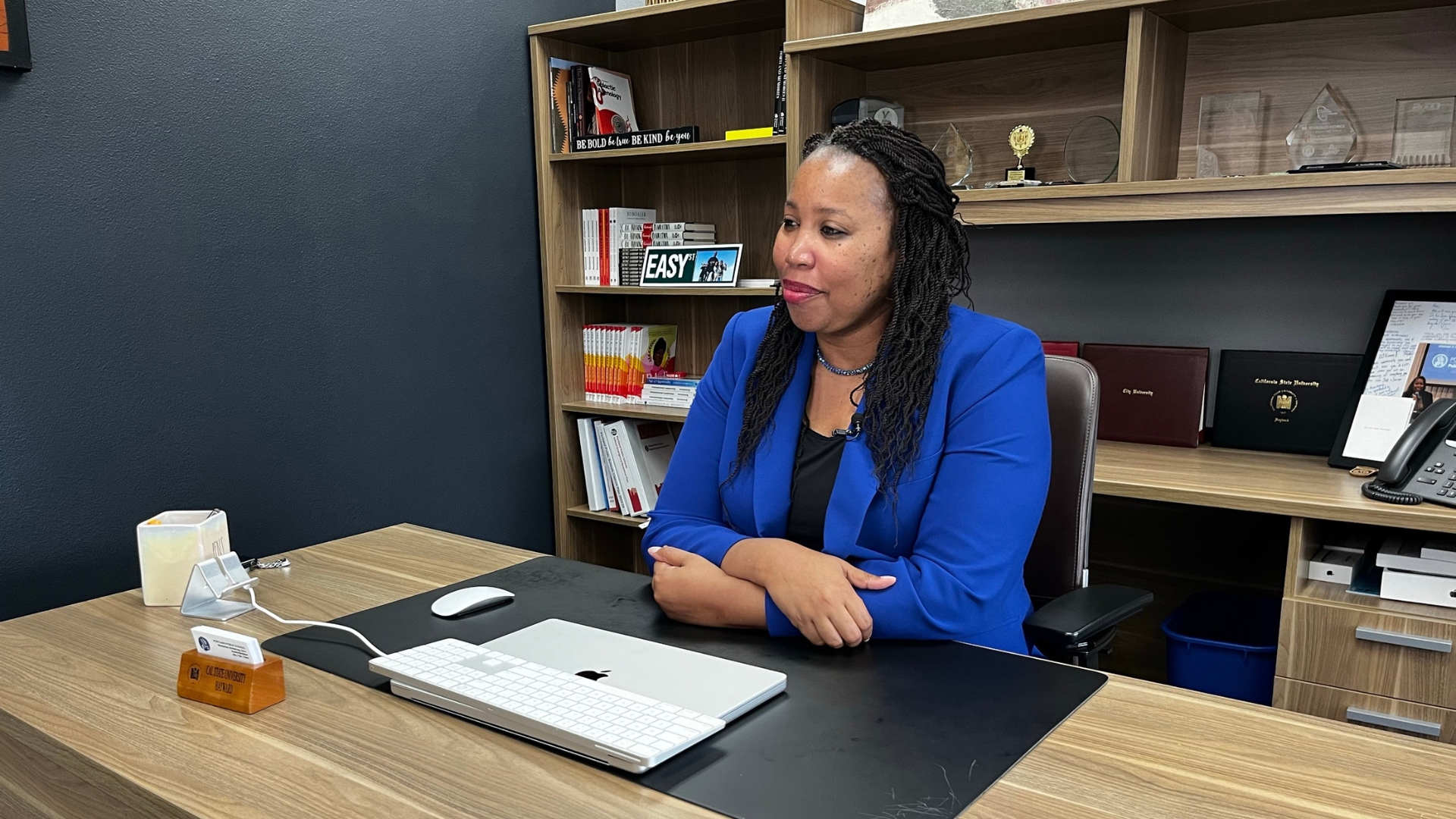PORTLAND, Ore. — For just under two months, Portland Public Schools has had a new superintendent on the job. Dr. Kimberlee Armstrong comes at a challenging time for the district — joining after a school year disrupted by a historic teachers strike, winter weather closures, administrative turnover and major funding shortfalls in the district.
But with a new school year soon to begin, Armstrong said she wants families to have faith in the city and the district, as she does.
Armstrong started July 1, taking the reins from interim superintendent Dr. Sandy Husk, herself appointed to fill the role left vacant by Guadalupe Guerrero's departure in February.
Before taking on the new role, Armstrong spent a year as deputy superintendent for Evergreen Public Schools in Vancouver, serving as chief academic officer at PPS the year before that. She previously held leadership roles in multiple California school districts. She holds degrees in education for educational leadership and policy studies from the University of Washington, and business administration and teaching from City University of Seattle.
Now, Armstrong told KGW on Thursday she's making it her first priority to establish relationships in the district and community, working to rebuild trust. With that in hand, she can buckle down on the hard and rewarding work of teaching and learning.
"I will say that learning loss during and after the pandemic was real," Armstrong said. "Many of our students were impacted and continue to be impacted to this day. It's not OK for us to have any percentage of our students not reading at grade level or being able to be competitive in the classroom with their peers across the nation. And so we're leaning into work around literacy."
That means employing a generous grant from the state of Oregon for early learning, Armstrong said, and working with local businesses and nonprofits to promote reading for an overall effort on literacy. Within the past few years, PPS has also embarked on a successful effort to adopt high-quality instructional materials and resources, she said.
Attendance and attention
But PPS faces challenges not just in terms of math and reading scores. Like many districts, it's also struggling with a rise in chronic absenteeism.
"I will tell you that I do believe that students need to be in the classroom to learn, and I know that many educators across our city believe that," Armstrong said. "And we want our students to not only show up, but to be involved in the learning that's happening."
PPS does have staff and initiatives dedicated to supporting students and removing barriers to attendance, Armstrong said, and she thinks the ability to offer free breakfast and lunch this coming school year will be a major step in that direction.
But overall, Armstrong said that Portland Public Schools offering quality experiences, support and connections to adults who care will help to get students in classrooms.
"Another priority and another thing I'll be leaning into is making sure our classrooms are safe and that they're clean and that they're supported," Armstrong said. "Not just from the facilities standpoint, but also for safety. Like, I want our families to know that you can send your babies to us and we're going to work hard to make sure that they're safe, that they're well-supported and that they're in environments that are conducive to learning."
She said she's heard from many people in the community about the issue of cell phones in schools and how they can contribute to distractions and bullying. While several PPS schools are piloting ways to ban phones during class time, Armstrong said the district wants to take the time to hear from everyone, including students, before instituting a district-wide policy so they can "get it right the first time."
The funding conundrum
Regardless, there's an elephant in the room. What several of Oregon's largest districts have said in the last year, including PPS, is that the state simply isn't allocating enough funding for public schools — something Gov. Tina Kotek has acknowledged and asked the legislature to address in next year's session.
"When it comes to our current service level funding, it's not adequate. Right?" Armstrong said. "So we need to lean into that conversation. I know that our mayor has opened up a conversation about potentially increasing funding for the current service level, and we're really looking forward to continuing that.
"But I also know that it's going to take many of us together to share our stories, to share the realities of our classrooms, and making sure that every one of our employees are supported to do the work that they were hired to do — that they, you know, maybe grew up dreaming about doing. And that's going to take more funding."
Armstrong said she is now on a workgroup for the Coalition of Oregon School Administrators, which has been pooling resources from the state's largest districts to push for help from lawmakers and, ideally, help shape policy that will better fund public schools.
"At the end of the day, I want people to know that I believe in Portland, I believe in the power of education that can happen here (at PPS)," Armstrong said. "I believe in our schools; I believe in our teachers. I know that we have quality programs and that we have the services to meet students where they're at. And I want our community to trust that we can make education happen, and that we can prepare our students for a lifetime of learning and help them move into whatever they envision for themselves."

